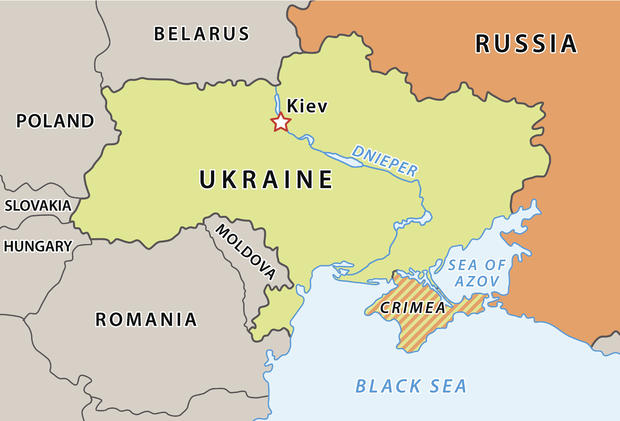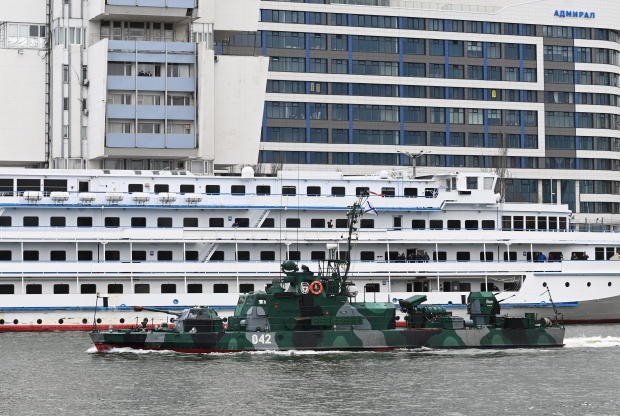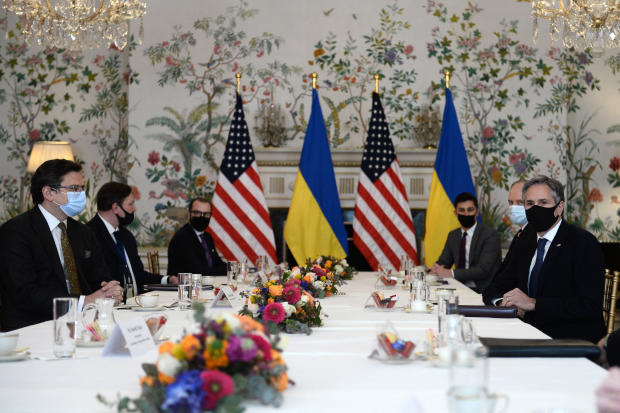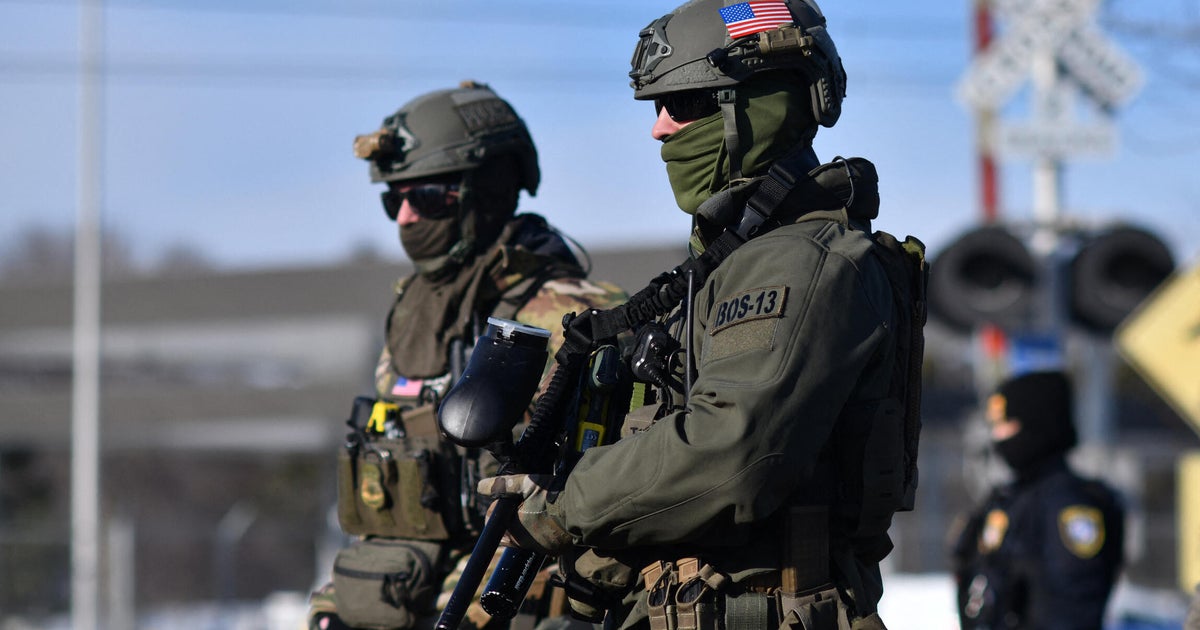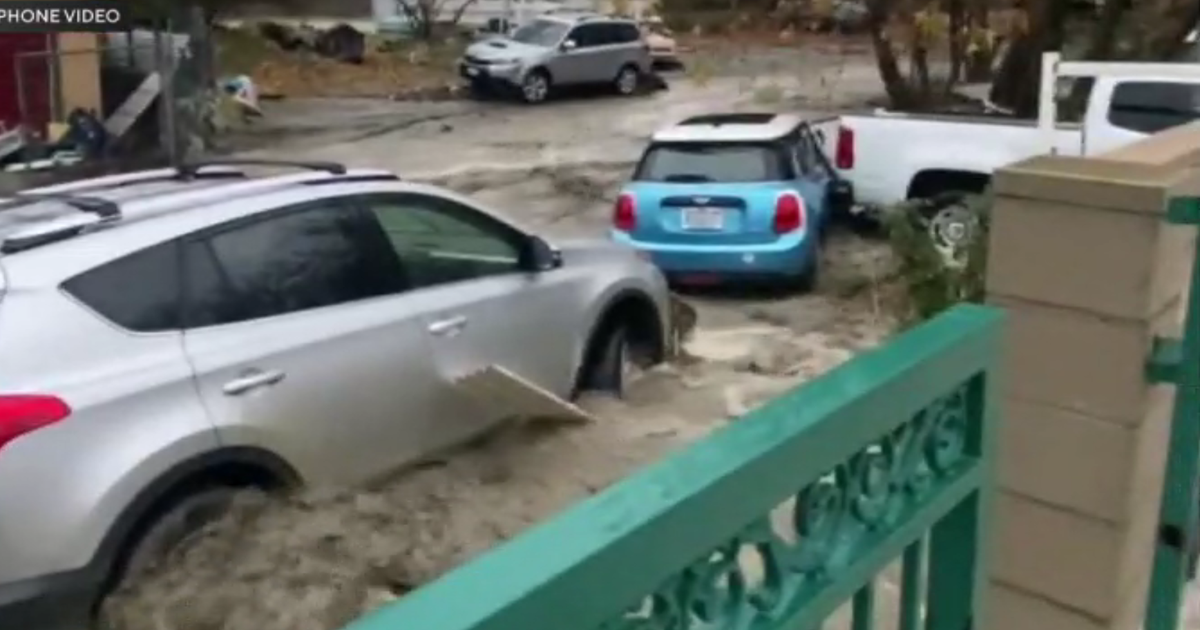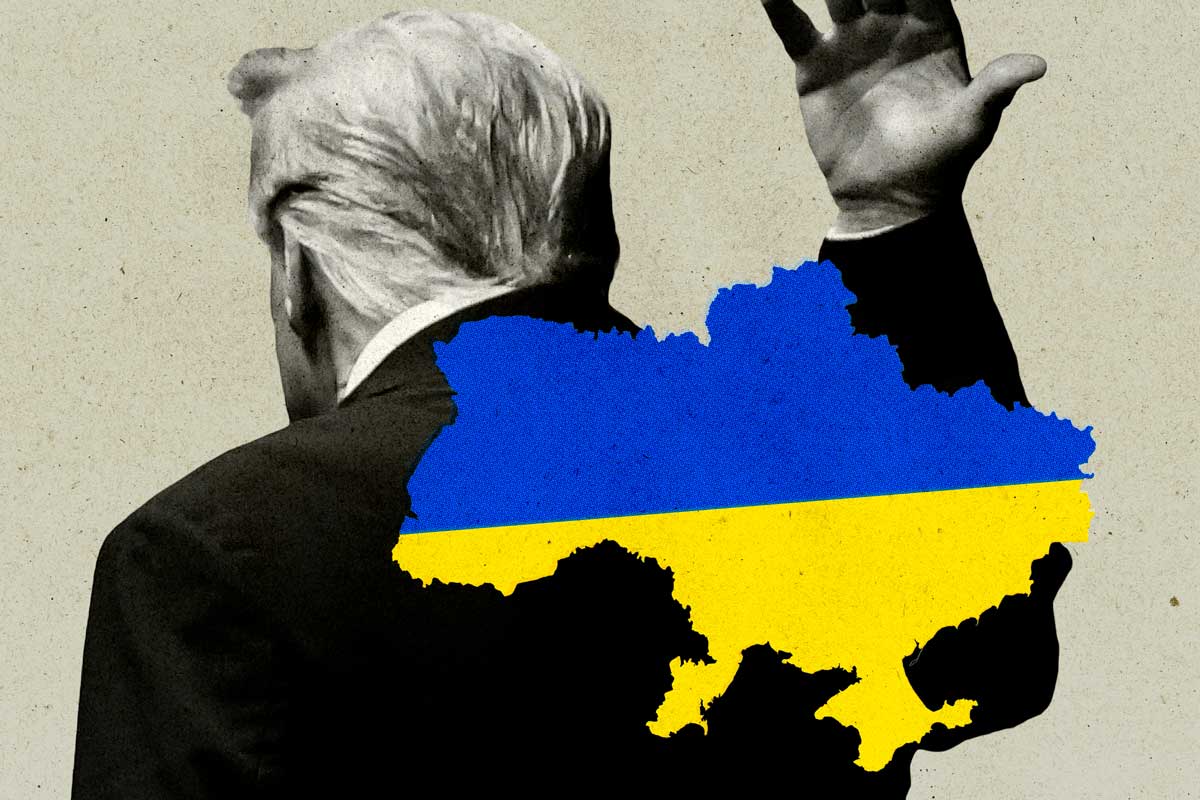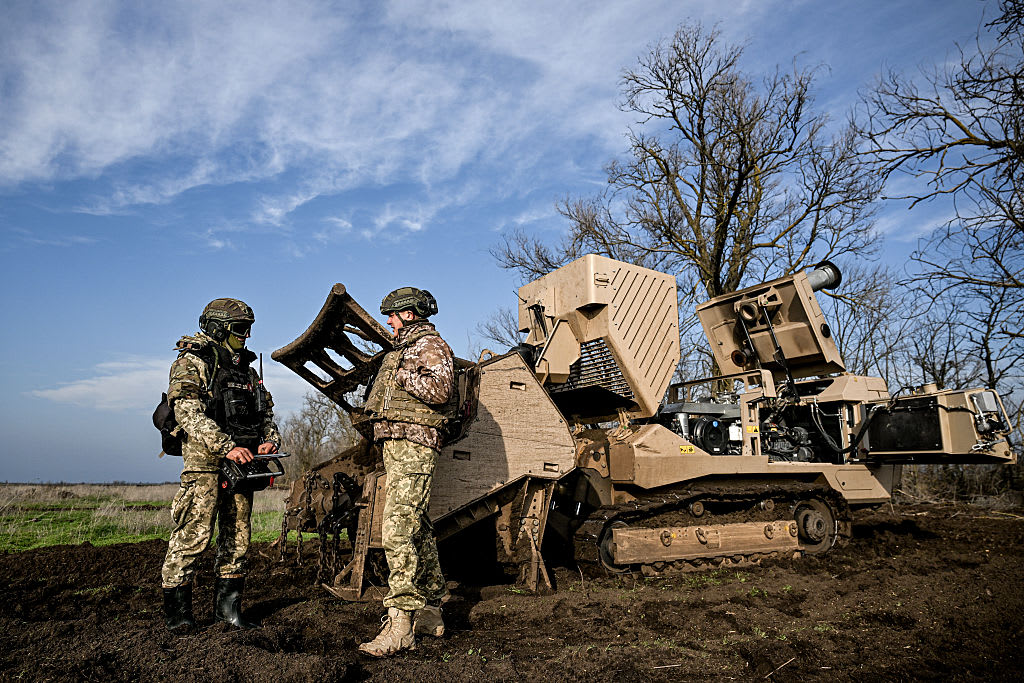Russia warns U.S. to stay away for its "own good" as Ukraine standoff intensifies
Moscow — Russia warned the United States on Tuesday against sending warships to the Black Sea, urging American forces to stay away from the annexed Crimean peninsula "for their own good" as the situation along Ukraine's border caused increasing concern in the West. The U.S. Secretary of State, meeting with Ukrainian and NATO officials in Brussels, made it clear that the Biden administration, along with its allies in Europe, has Ukraine's back and considers Russia's ongoing military buildup in the region "very provocative."
The Turkish Foreign Ministry said on Friday that Washington had informed Ankara that two U.S. warships would pass through Turkish waters this week to be deployed in the Black Sea. The deployment would come amid a significant escalation of the conflict in eastern Ukraine between Russian-backed separatists and Ukraine's forces, which have U.S. and European support.
Hostilities first flared in 2014 when Russia unilaterally annexed Crimea — a peninsula that sticks out into the Black Sea and is home to a Russian navy base — away from Ukraine, drawing condemnation from the Western world and a series of sanctions.
Russian Deputy Foreign Ministry Sergei Ryabkov was cited by Russian news agencies on Tuesday as calling the deployment of U.S. warships in the Black Sea a provocation designed to test Russia's nerves.
"There is absolutely nothing for American ships to be doing near our shores," Ryabkov said, warning there was a very high risk of unspecified incidents if U.S. military hardware were to be positioned in the Black Sea.
"We warn the United States that it will be better for them to stay far away from Crimea and our Black Sea coast," Ryabkov was quoted as saying. "It will be for their own good."
Pentagon spokesman John Kirby declined during a regular press briefing on Friday to confirm the Turkish government's statement that U.S. warships were being sent to the Black Sea. He noted that the U.S. "routinely" operates in the Black Sea, but said he wouldn't "speak to operations."
The current escalation has added strain to already tense U.S.-Russian relations. Secretary of State Antony Blinken warned Russia against aggressive actions in an interview aired over the weekend, saying any aggression in Ukraine would have consequences.
Ryabkov responded on Tuesday, accusing the Russian "adversary" of trying to undermine Russia's position on the international stage. He reiterated Russia's readiness to defend the interests of its citizens, and ethnic Russian speakers in eastern Ukraine.
Kremlin spokesman Dmitry Peskov said Russia was preparing itself in the event any new sanctions should be imposed on Moscow by the U.S. or its global partners.
Meanwhile, Russia has continued to move forces into both Crimea and the region along its border with Ukraine. The Defense Ministry reported on Tuesday that 15 warships and vessels of the Caspian Flotilla had been sent to the Black Sea as part of previously announced military exercises.
Ukraine said earlier this week that Russia had already massed more than 40,000 troops along its border, and at least 40,000 more in Crimea. Russia says the troop buildup is part of exercises, and has stressed that its forces will go where they want, when they want on Russian territory.
"Very provocative action"
Top U.S. officials are in Europe this week, including Secretary of Defense Lloyd Austin and Blinken. Austin announced during a stop in Germany on Tuesday that the U.S. was going to deploy an additional 500 troops to that country.
When asked if the move was meant as a message to Russia, he said it was "a sign to NATO" of the U.S. commitment to the transatlantic alliance, and of the firm commitment to Germany. Under President Donald Trump, Washington said it would withdraw thousands of the American forces who've been stationed in Germany for decades. That decision was suspended by the Biden administration, and now the force is set to grow.
Blinken, meanwhile, was in Brussels, meeting NATO partners, and he met separately with his Ukrainian counterpart to discuss the standoff with Russia.
"The United States stands firmly behind the sovereignty and territorial integrity of Ukraine, and I'm her to reaffirm that with the foreign minister today," Blinken said. "That's particularly important in a time when we're seeing, unfortunately, Russia take very provocative action when it comes to Ukraine. We're now seeing the largest concentration of Russian forces on Ukraine's border since 2014. That is a big concern not only to Ukraine, but to the United States and indeed to many of our allies and partners."
Sitting across from him, Ukraine's Foreign Minister Dmytro Kuleba said the Russian buildup was "taking place not only along the border of Ukraine, but along the border of the democratic world. For thousands of kilometers to the north and to the east of our border with Russia, there is no democracy. So, this is the struggle that is taking place between democracies and authoritarianism, and in this struggle the support of the United States is absolutely crucial, and deeply appreciated."
Kuleba thanked NATO, also, and said that warnings already conveyed to Moscow through diplomatic channels, "will be supported by actions that make it very clear for Russia that the price of further aggression against Ukraine will be too heavy for it to bear."
He said the Ukrainian and U.S. delegations in Brussels, and more broadly the NATO allies at large, would continue discussing ways to ensure stability along his country's tense border with Russia.
While no NATO deployments have been confirmed, Russia's Defense Ministry claimed the alliance was planning to position 40,000 more troops and 15,000 pieces of military equipment close to Russian territory. He didn't elaborate, but said that "in response to the military activity of the alliance that threatens Russia, we have taken appropriate measures."
NATO Secretary-General Jens Stoltenberg said earlier on Tuesday that he was "seriously concerned" by Russia's deployment of additional forces to the Ukrainian border.
"Russia is now trying to reestablish some kind of sphere of influence where they try to decide what neighbors can do," Stoltenberg said.
CBSNews.com's Tucker Reals contributed to this report.
